4 Aug 2015
A Pakistani centenarian’s “alternative” way of filling up Asia’s potholes and boosting road safety
Karachi — Millions of potholes pockmark the streets, roads and alleys of Asia. They exact an immense collective toll in the form of motorcycle accidents, damage to vehicles and traffic casualties.
Filling them up is usually a public sector responsibility. That means waiting for the local Roads or Transport departments to complete the bureaucratic process — from identifying the locations, completing the paperwork, getting the various stamps and signatures, procuring budget allocations and then activating the machinery to get the job done.
There is a potentially simpler way.
Pakistan’s only 100-year-old philanthropist Mr Mahmood Futehally (who also happens to be my stepfather), says local communities, villages, housing estates and other small-scale residential and commercial areas can simply do-it-yourself, rather than wait for the public sector personnel to do the job.
|
A long-time environmentalist, with a passion for sustainable farming methods and philanthropic public service, Mr Futehally has come up with a way to use the mineral bentonite as a core ingredient for a new concoction that he calls Bentodoil, which can provide a low-cost and environmentally safer way of filling up the potholes.
The bentonite (https://en.wikipedia.org/wiki/Bentonite) can be mixed with a number of other natural, oil-based and waste substances (see full formula below). It will produce a thick, gooey, paste-like concoction which can be used to fill up the potholes or smoothen jagged road-edges.
After being left to dry and solidify, it will be strong enough to withstand the weight of motorcycles and cars for several months. Over time, however, it will deteriorate but then can easily be filled up again to extend its life by another few months.
Bentonite can be found in most parts of Asia, especially in otherwise unproductive hilly areas. Mr Futehally says any local university geologist can help locate it.
He says that depending on the number of potholes on any given street, the amount of time that local residents have to wait for the public sector to do its job, and the scale of inconvenience and damage being caused in the interim, the local communities can contribute small amounts of money to compile the ingredients and make Bentodoil by themselves.
He says there is a potential commercial opportunity here for investment in mass-production of Bentodoil to make it available to the public.
About 10 streets in Karachi have been utilised to test the formula. Talks are under way with the Federation of Pakistan Chambers of Commerce and Industry to win wider business backing.
During my brief visit to Karachi last week to personally congratulate him on turning 100 in early July, he gave me a demonstration of how Bentodoil would work. He used the uneven edges of the alley leading to his farmhouse as an example. The photographs below show the result.
He asked me to help spread the word. This is my 100th birthday present to him.
Contact details for further information: m.futehally@gmail.com
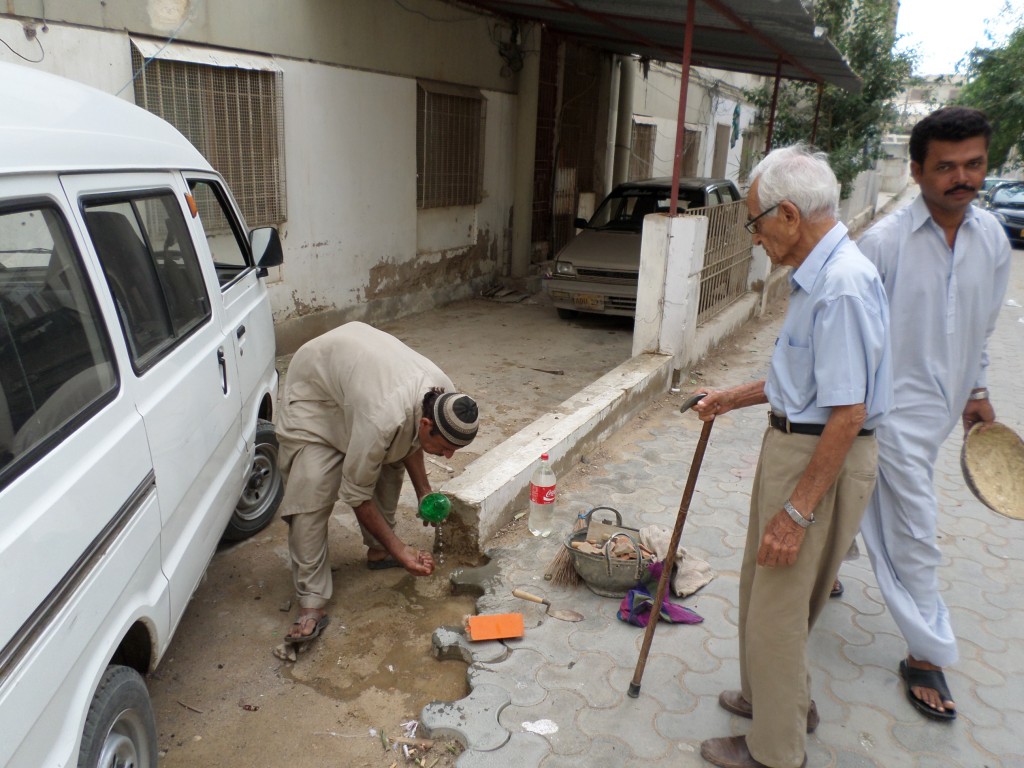 =========== |
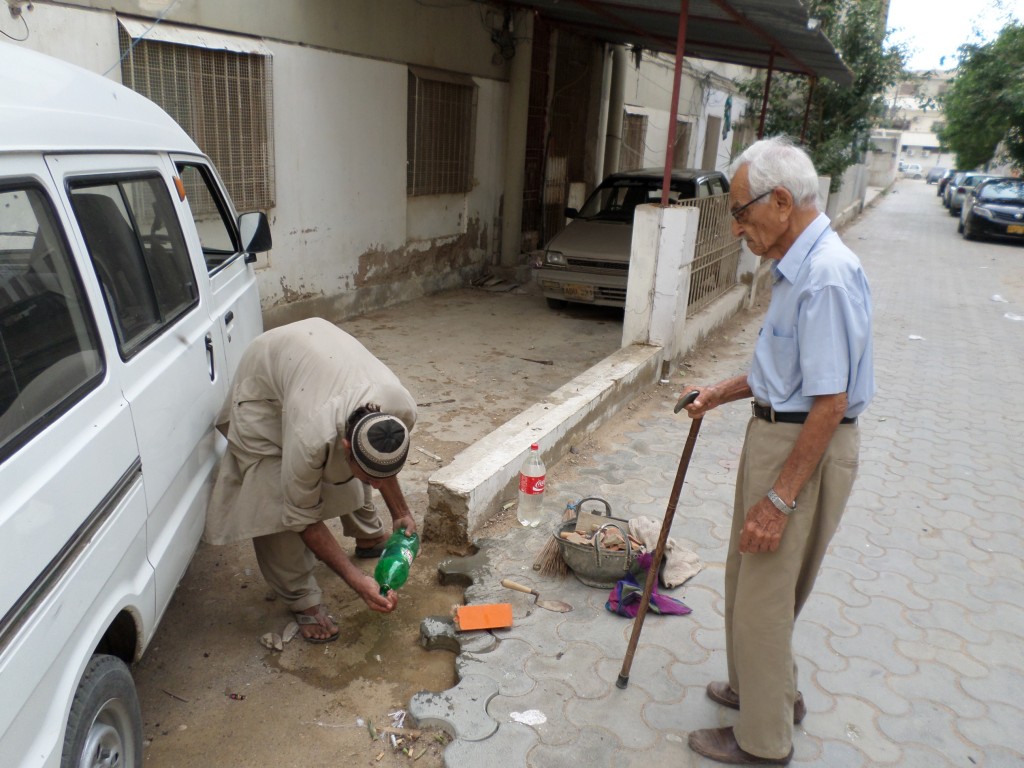 =========== |
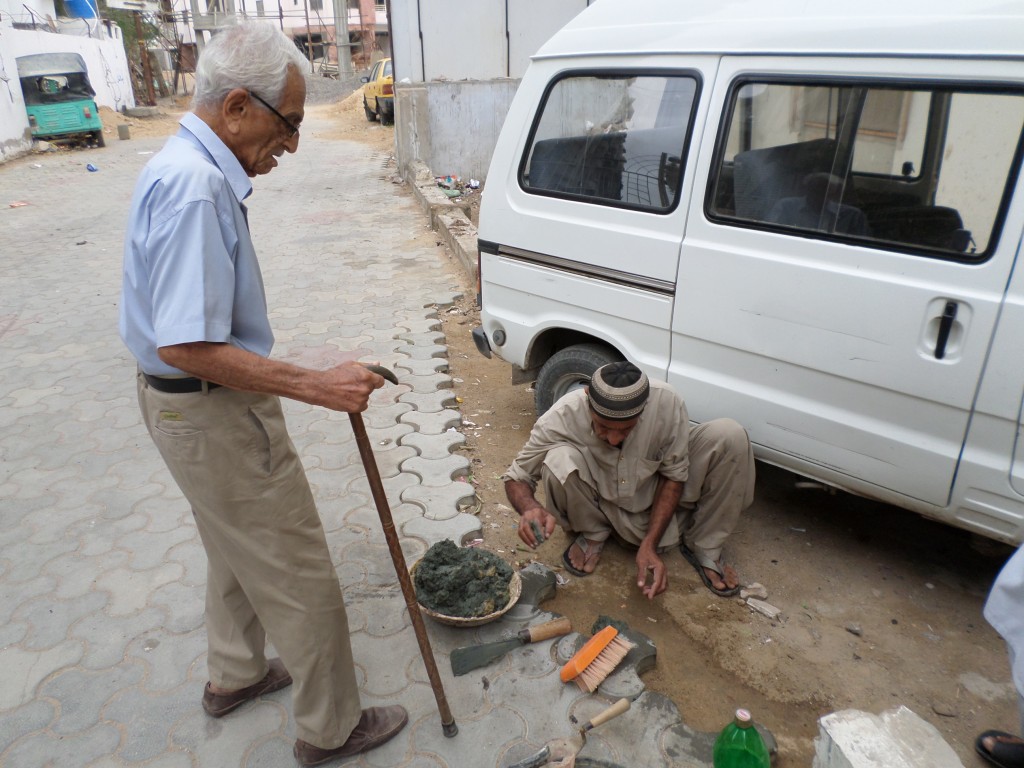 =========== |
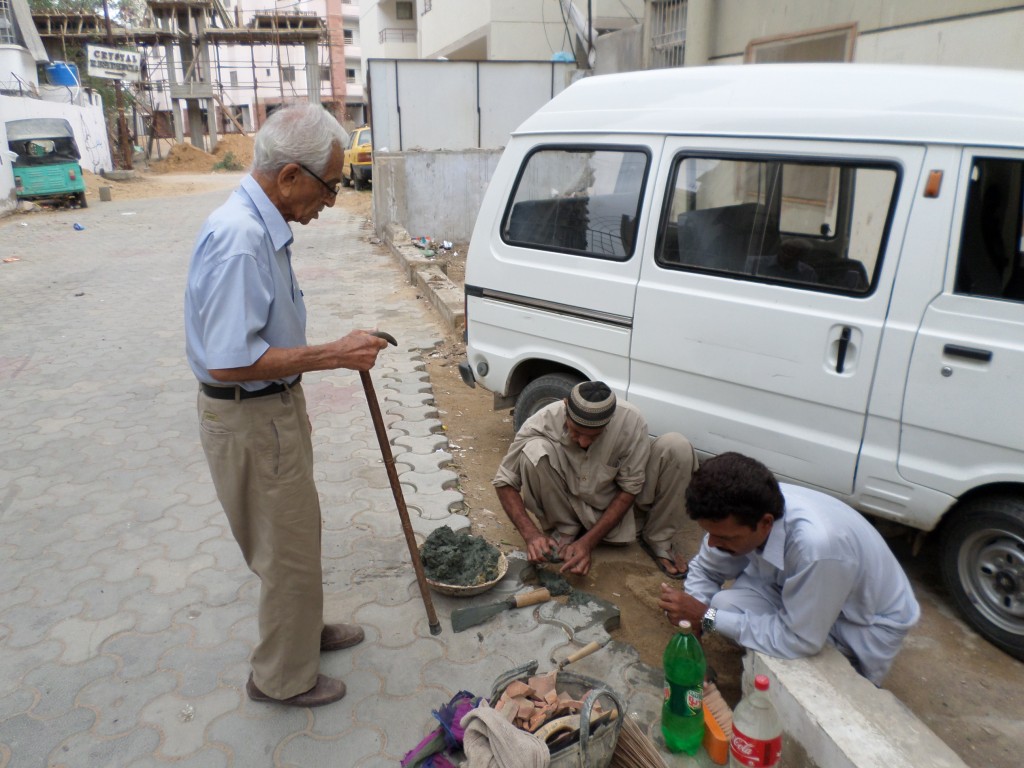 =========== |
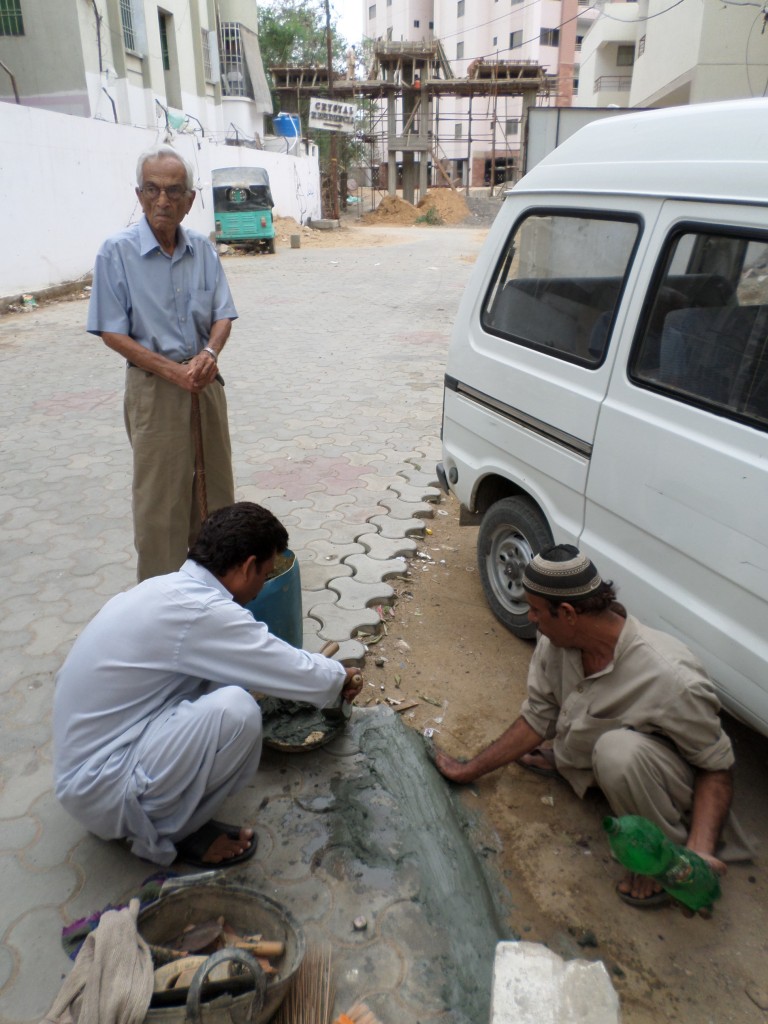 =========== |
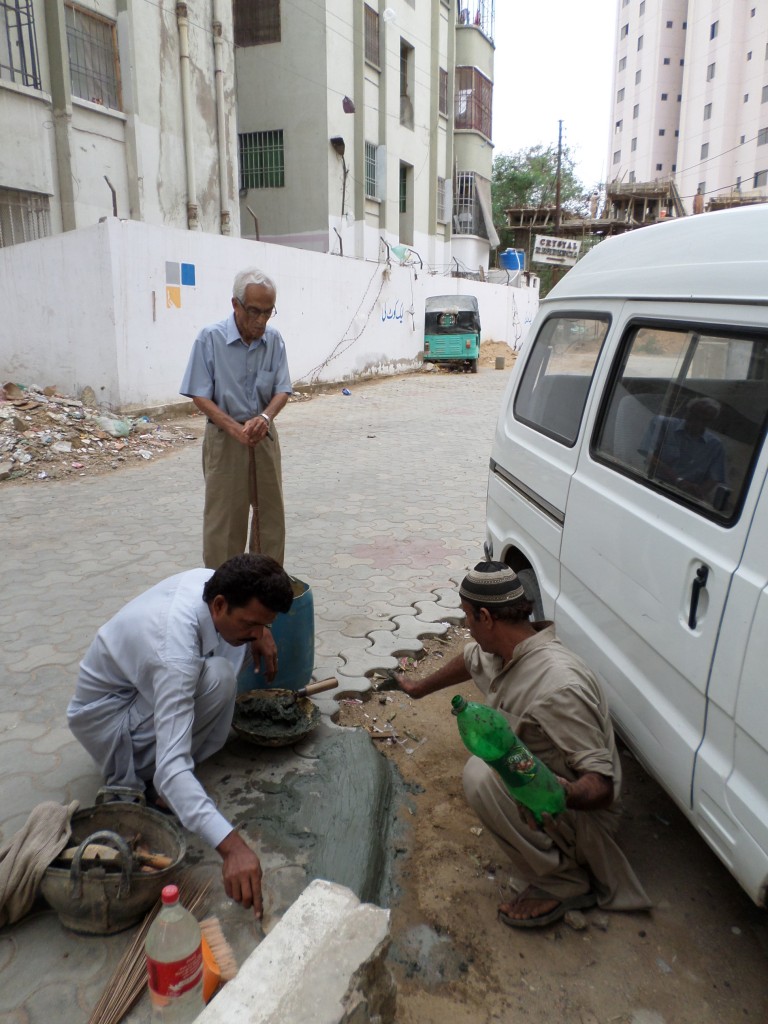 =========== |
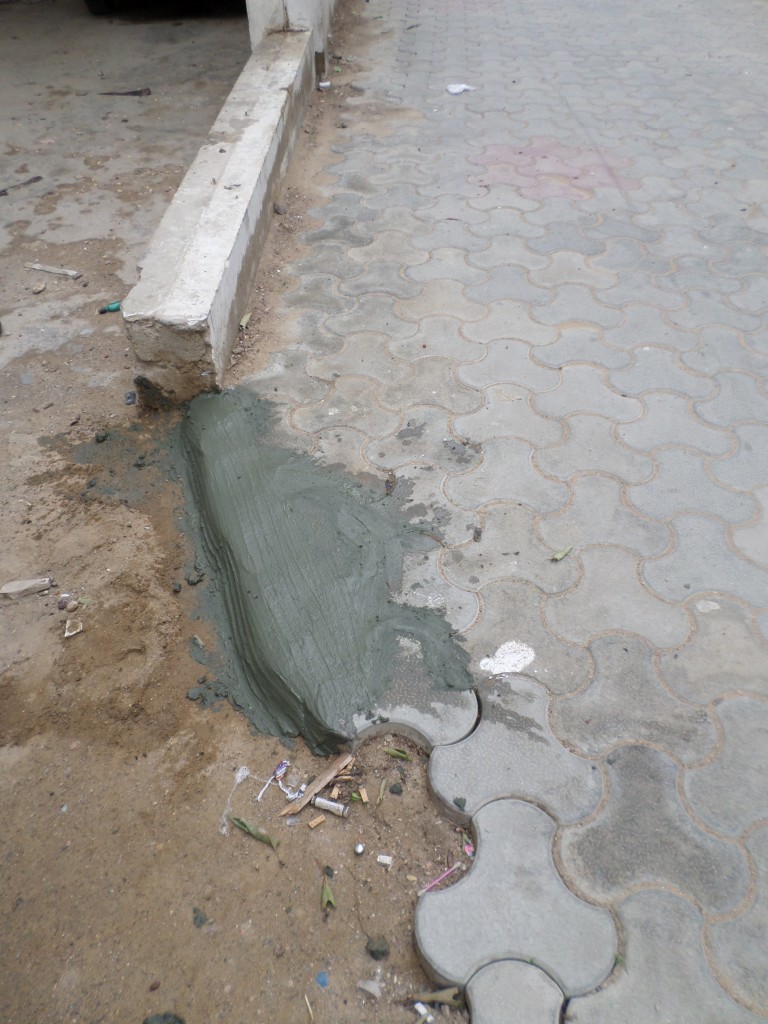 =========== |
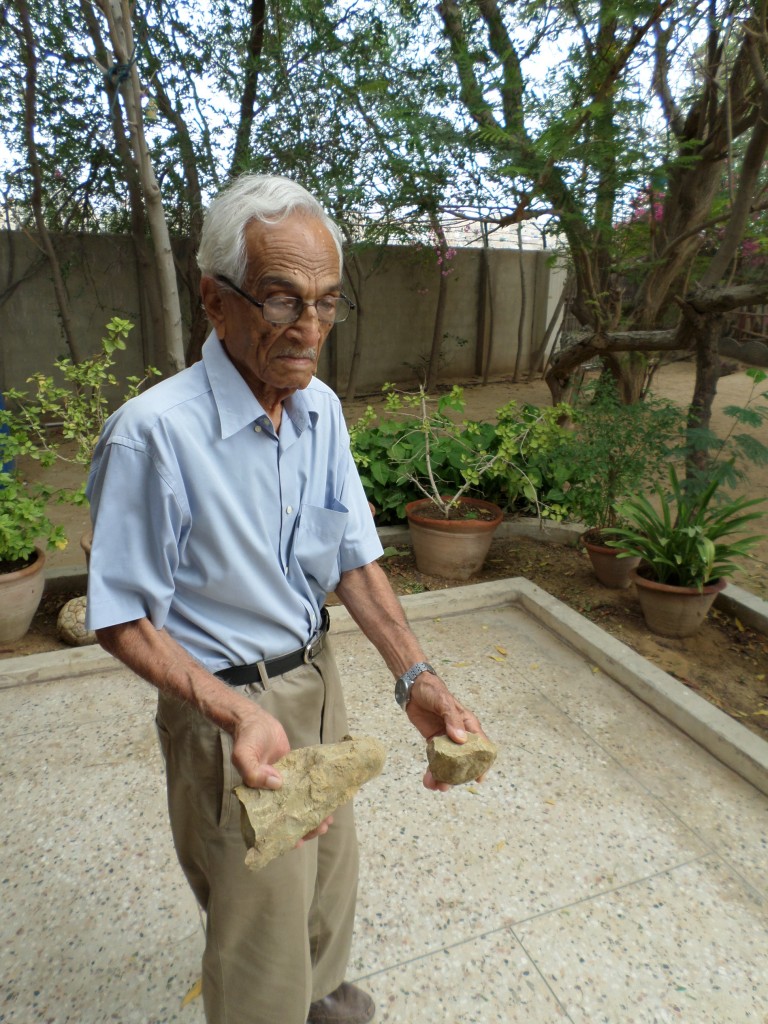 Mr Futehally showing samples of bentonite |
